7 reasons your clothes come out smelly from the washing machine
Have you noticed your laundry is smelling as of late? Here’s why

We rely on the best washing machines to tackle our laundry woes. Whether you’re dealing with a stained shirt, stinky sportswear or ‘hand wash only’ delicates, your washing machine will have an appropriate setting for the task. Items should emerge clean and fresh, and any stinky residue from our sweat and stains should be no more. Unfortunately, this isn’t always the case, even if you’ve got one of the best clothes dryers for the final touches.
While stains may well have been rinsed away, it can sometimes seem like, no matter what we do, our clothes come out smelly — sometimes more smelly than they even went in. How can this be when it’s just been washed? To help decipher this mystery, we’ve pulled together 7 reasons your clothes smell after washing. The reasons can be everything from how the machine is loaded, to what you use to wash it, to drying methods. So, you can work out where things are going wrong with your laundry routine, and make things smell fresh again in no time.
If the spin cycle won't run, here's 7 reasons your washing machine won’t spin — and how to fix them. You might also be interested in 7 laundry myths debunked by the experts.
1. Overloading the machine
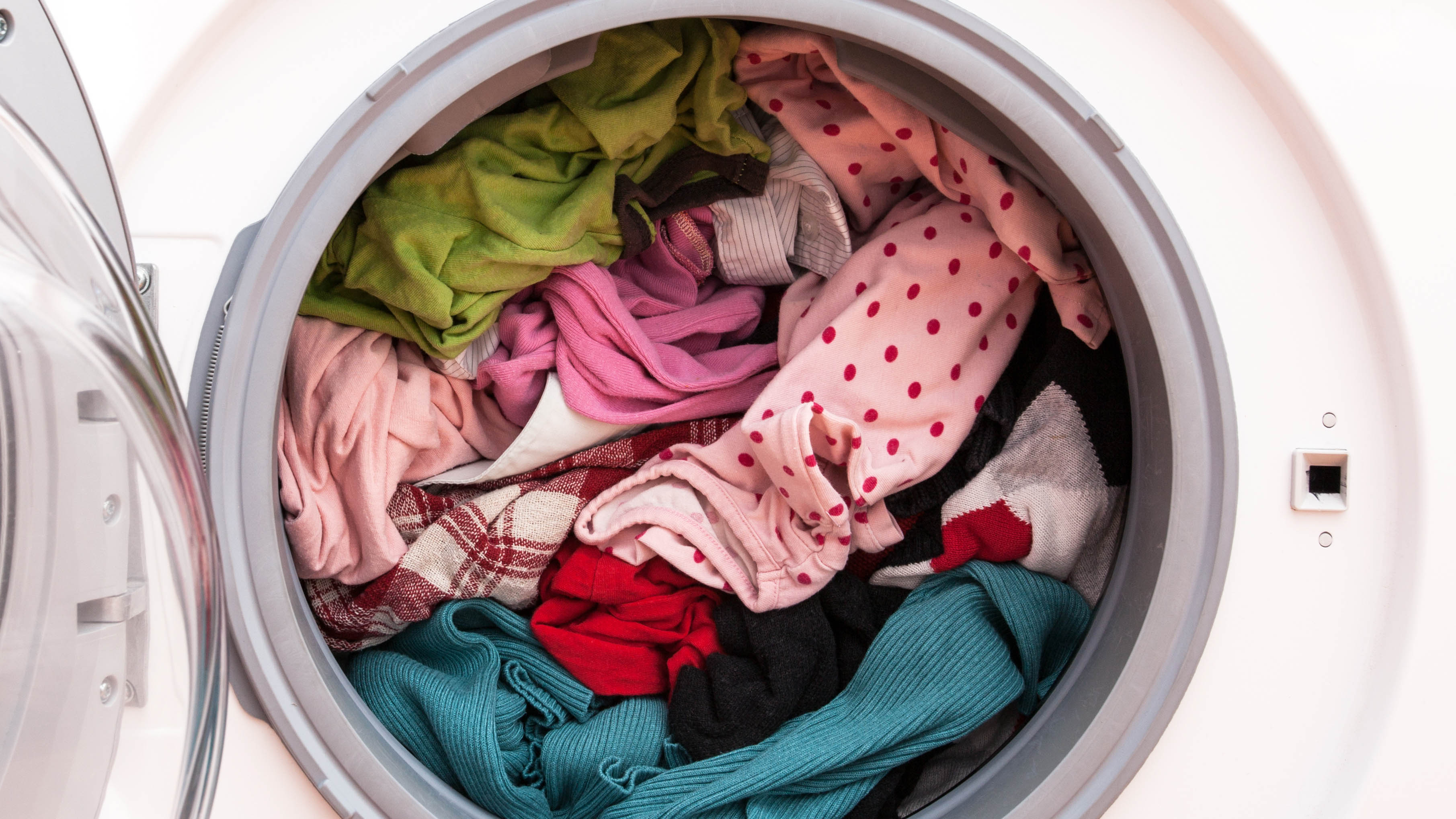
First of all, one of the biggest laundry mistakes you can make is overloading your washing machine. While this is a tempting habit — it helps you get through the hamper more quickly and saves spending money on additional cycles — it’s a huge no-no. When your clothes are crammed into the drum, they won’t be able to agitate as efficiently, which hampers the cleaning performance. Plus, the detergent won't be able to spread throughout the load. Ultimately, your clothes are more likely to retain any stains and smells because they’re not being washed properly.
As well as smelly, your clothes are likely to emerge sopping wet as well. An overloaded washing machine can fail to spin because the excess weight makes it unbalanced. So, even if you’re trying to reduce the use and pressure on your washing machine, you’re actually making things worse. Stick to the maximum capacity for the best cleaning performance and to prevent your clothes from becoming damaged in the washing machine and to help your washing machine last longer
2. Insufficient cycle
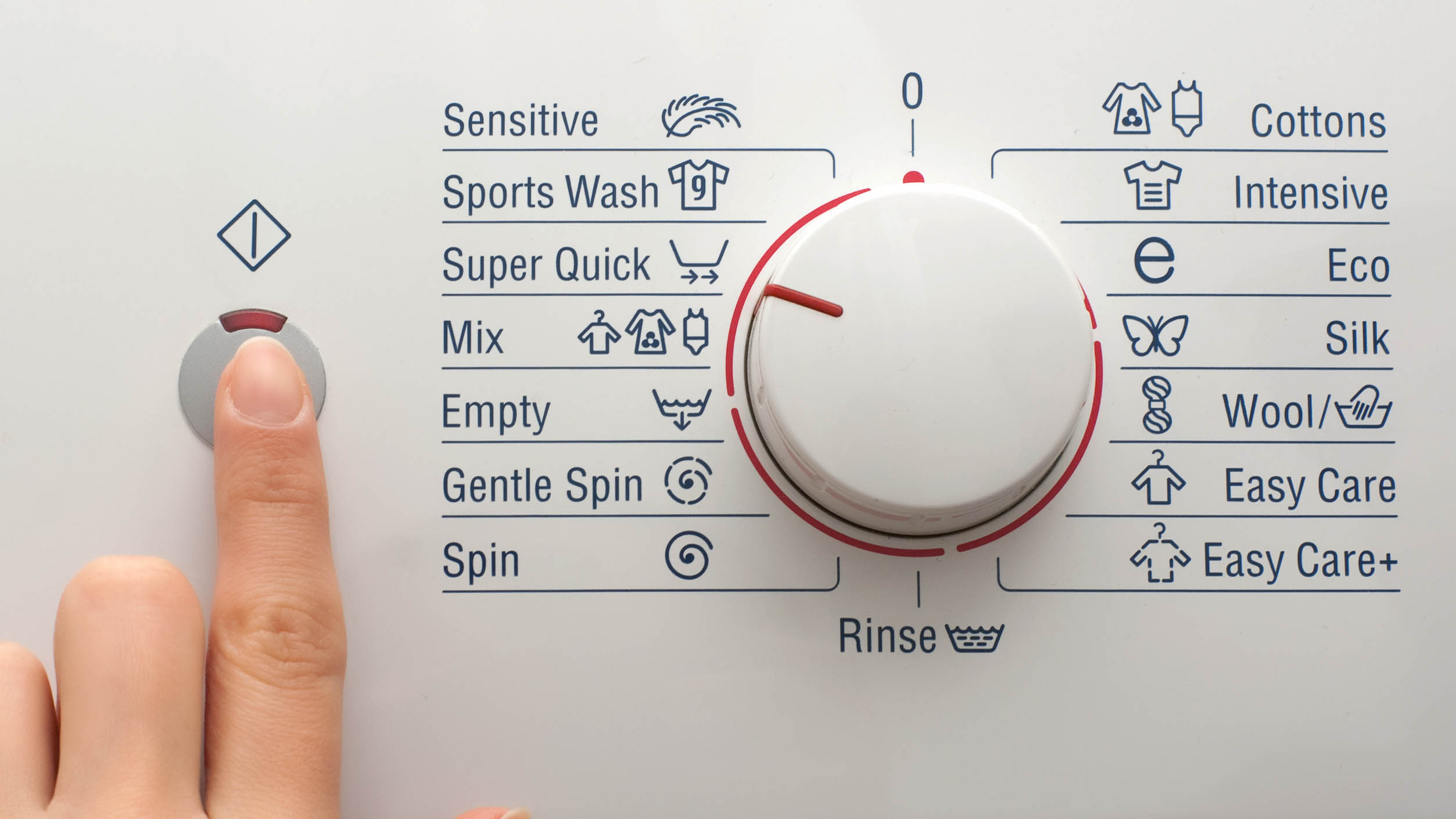
If you’re in a rush, or want to save money on energy, it’s easy to rely on the quick wash setting. This washes your clothes in no time at all, with some cycles taking as little as 20 minutes. The trouble is, there’s a time and a place for a quick wash setting. When you stop and think about it, your clothes are being washed for a reduced amount of time, with a shorter rinse and spin to boot, so naturally the clothes won't be washed as thoroughly. Consequently, any residual smells are less likely to be fully removed.
For regular wash loads, stick to using the dedicated standard cycle, relevant to what you’re washing, and don’t shorten its length. While this will take longer, it will help eliminate any residual smells. If you’re worried about energy use, eco settings are becoming more widely available which reduce the energy and water consumption in a trade off for a longer cycle. Alternatively, you can lower the temperature of the wash to save on energy, but keep in mind this will impact its cleaning performance. A hot wash (as hot as the care label allows) may be necessary to sanitize the laundry and remove any lingering smells.
Sign up to get the BEST of Tom's Guide direct to your inbox.
Get instant access to breaking news, the hottest reviews, great deals and helpful tips.
3. Wrong amount of detergent
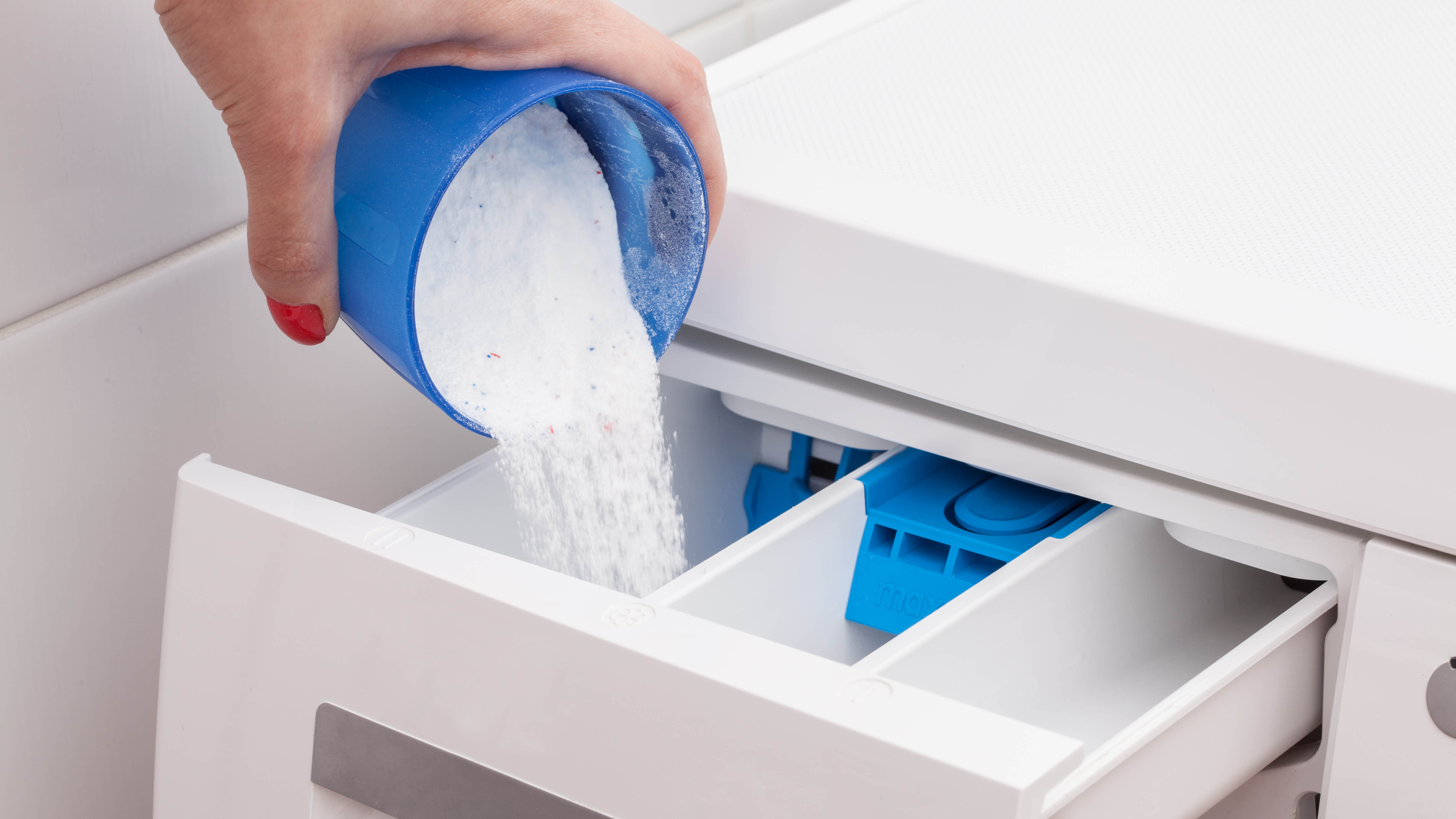
The more detergent, the cleaner the laundry right? Wrong. By adding an excess of detergent to your washing machine, you’re actually impairing its cleaning performance. Excess suds will form, which prevents clothes from agitating as efficiently. According to Tide, ‘Too many suds prevent a good wash by cushioning the clothes from rubbing against one another – it’s this rubbing that helps the clothes get as clean as possible.’
On top of this, your washing machine could fail to effectively rinse away excess detergent. This can leave your clothes feeling stiff and ‘scrunchy’ and more likely to react with sensitive skin. While dirt will still be trapped in your clothes from the poor wash performance, the intense smell of detergent can also make things overwhelming. In the end, you’re left with smelly laundry which you won’t want to wear.
4. Not cleaning your washing machine
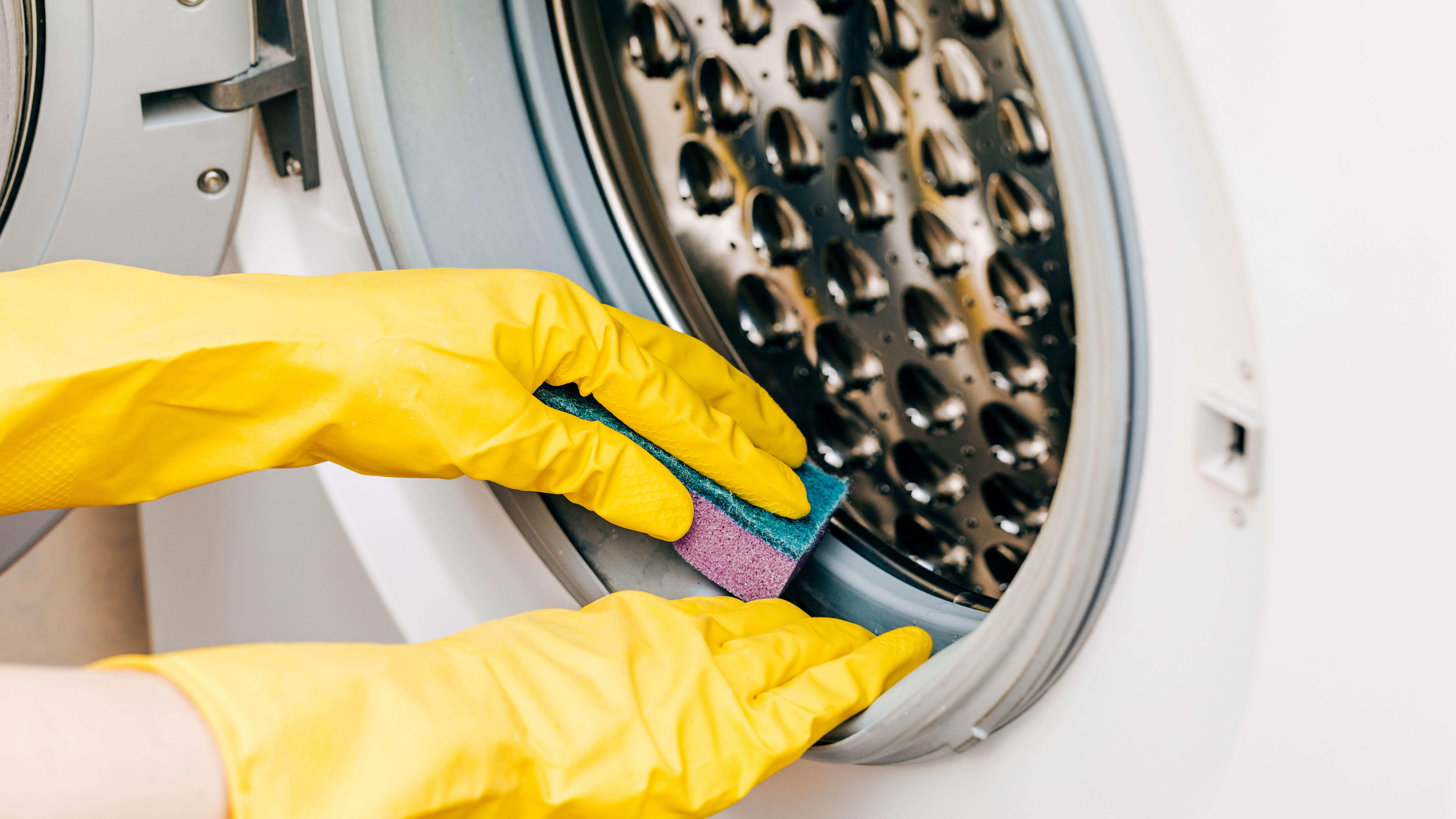
Believe it or not, your washing machine needs cleaning once in a while. Residual soap and water sits in the machine with each use, leading to a build-up of soap scum, mildew and limescale. Over time, this results in a smelly washing machine. This smell can then impart on your clothes as you wash them — so it’s worth checking the conditions of your washing machine if you’ve noticed smelly laundry.
Cleaning a washing machine is pretty straightforward. You can either buy a dedicated washing machine cleaning solution, such as Affresh Washing Machine Cleaner ($10, Amazon), or use household products to get the job done. White vinegar or bleach will give you the same effect, although never combine these — it will produce a lethal chlorine gas. You also need to clean the filter, the detergent drawer as well as the rubber gasket to remove all traces of grime, before running your chosen solution through the machine. For full instructions, see how to clean a washing machine.
Remember to leave the door and detergent drawer open to vent the machine between uses. This will keep it cleaner for longer. Also, your washing machine should be deep-cleaned about once a month.
5. Not drying efficiently

If your clothes don’t smell when unloaded from the washing machine, but it’s there after drying, the problem is likely down to your drying method. If clothes aren’t dried quickly enough, mold and mildew can develop, which leads to a musty smell. This often happens if clothes are hung up to dry indoors, but not spaced apart or spread out enough. If the environment is particularly humid and not well ventilated, this can also contribute to the smelliness.
Make sure you’re not overloading your clothes drying rack and you give every item sufficient space to dry. Don’t bunch anything up, and spread thicker items across multiple lines so air can circulate more effectively. Open windows to improve ventilation and invest in one of the best dehumidifiers to reduce humidity.
If the weather is nice enough, you can dry items outside to speed up the process. Alternatively, if items still feel damp after finishing in the clothes dryer, hang them up for the final touches before storing them away. This should put a stop to that musty smell.
6. Leaving it in the machine for too long

We’ve all been guilty of leaving our wet clothes in the machine for too long. The result is a musty load of laundry because mold and mildew have had a chance to develop. Not only does this impart an unpleasant smell on your laundry (which you will likely need to wash again), it can leave residue in the machine too, which can spread to future wash loads. You’ll want to break this habit as soon as possible. On top of the musty smell, if mold is given a chance to develop on clothes it can damage the material and potentially lead to issues for those with allergies and respiratory conditions.
Always set a timer so you know when your washing machine will finish. Listen out for the alert and deal with it asap, either moving it over to the clothes dryer or hanging it up to dry. Don’t switch it off and put it to the back of your mind, as the load will start to smell in as little as 12 hours. Don’t leave wet or damp laundry sitting in your clothes dryer either for the same reason. As soon as it’s finished running, remove the load and deal with it.
7. Using fabric softener
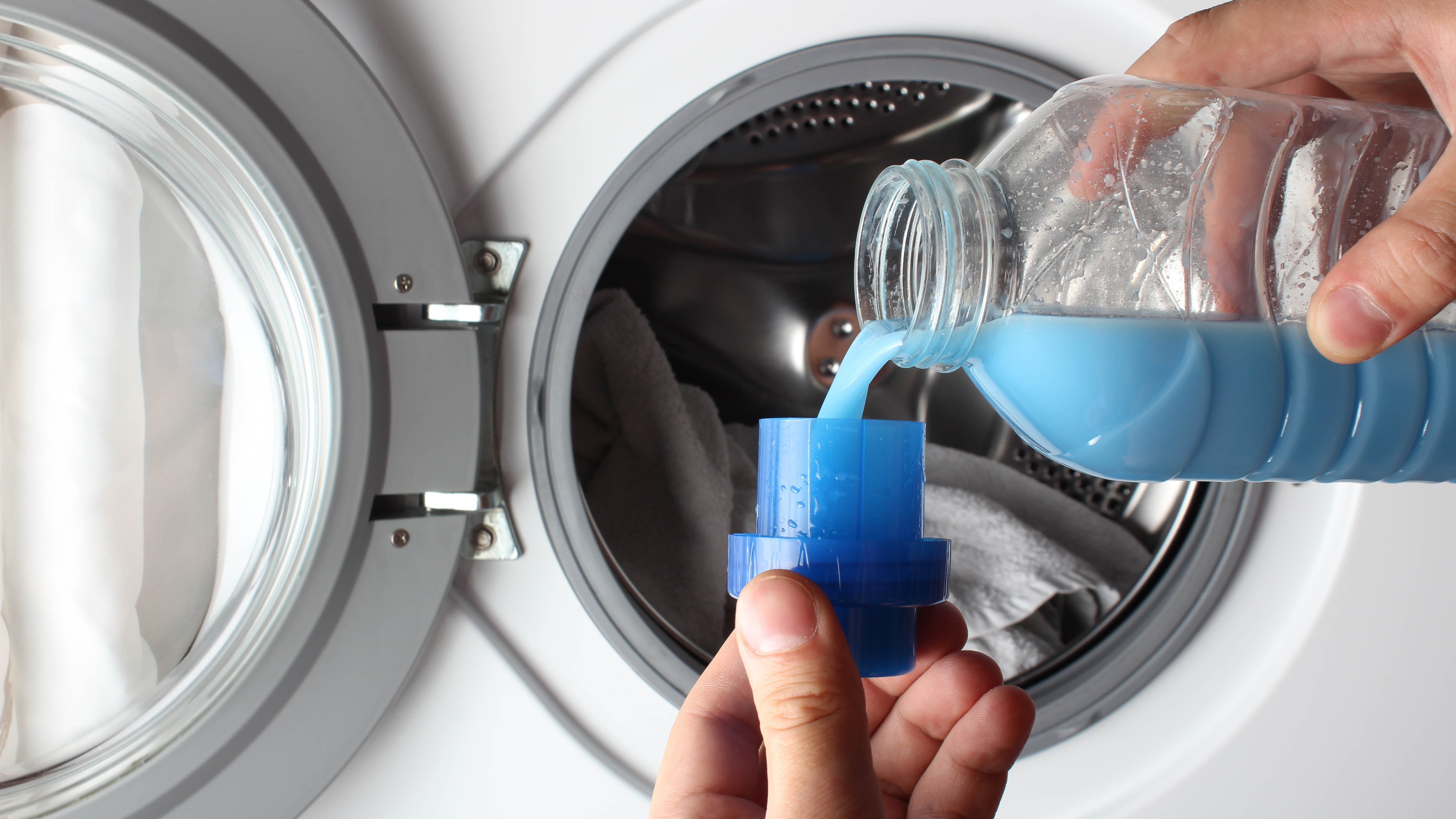
We use fabric softener to add fragrance to our laundry, but it might actually make things more smelly. This is because fabric softener works by forming a waxy coating on our clothes — this is how it makes things feel soft — but, by applying this layer, the water and detergent can’t penetrate the clothes as effectively. That means fabric softener creates a barrier which deters the wash performance.
As a result, the stains and smells are essentially locked into the fibers, with this layer becoming thicker and more tricky to penetrate with each application. That’s why when you wash something particularly dirty, such as sportswear, the added fragrance will be present, but the smell of residual sweat will likely remain too. This is just one of the reasons why fabric softener is bad news for you and your washing machine. You need to stop using fabric softener to make your clothes smell cleaner.
Swap fabric softener out with ¼ cup distilled white vinegar instead. It will still soften the load, but without deterring the wash performance, and there’s no need to worry about an overwhelming vinegar smell at the end. Just remember to keep bleach out of the washing machine when using vinegar.
More from Tom's Guide

Katie Mortram used to be a Homes Editor for Tom's Guide, where she oversaw everything from kitchen appliances to gardening tools, as well as smart home tech. Specializing in providing expert advice for cleaning and home manintenance, she now works as Household Advice Editor for Good Housekeeping.
